Premium Only Content
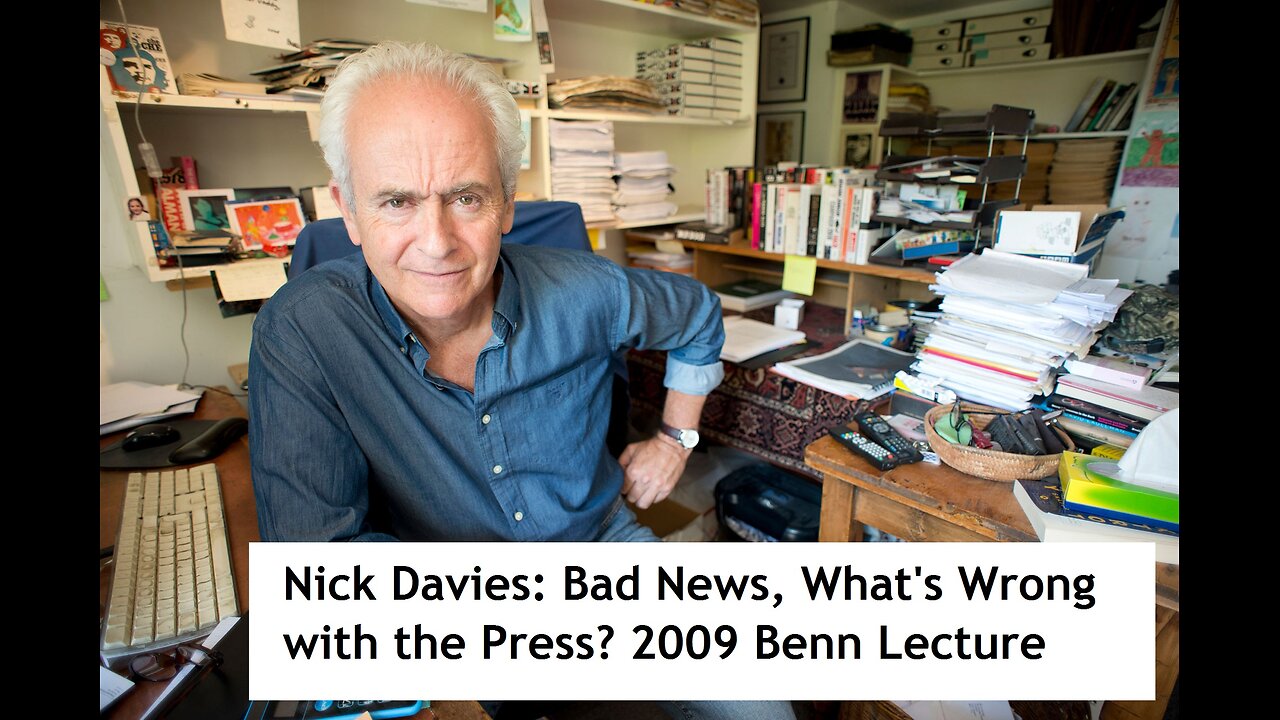
Nick Davies: Bad News, What's Wrong with the Press? Benn Lecture, Arnolfini, Bristol 26 Nov 2009
Nick Davies, award-winning Guardian investigative journalist and author delivers the fourth in this series of annual lectures, hosted by the National Union of Journalists and Arnolfini, which aim to open up a public conversation about the most important media issues of our time. Nick has been named Journalist of the Year, Reporter of the Year and Feature Writer of the Year for his investigations into crime, drugs, poverty and other social issues. A former reporter for World in Action, he won the Martha Gellhorn award for investigative reporting for his work on failing schools. His recent book Flat Earth News lifts the lid off falsehood, distortion and propaganda in the global media.
Producer: Tony Gosling
Nick Davies tells MPs of smear threat from newspaper
Flat Earth News author tells Commons committee about 'bullying' tactics and attacks former PCC chairman Sir Christopher Meyer
The investigative journalist and author Nick Davies told a committee of MPs today that one newspaper had threatened to publish an inaccurate story about his private life after his book Flat Earth News was published last year.
Davies, appearing before the Commons culture, media and sport committee, also launched an attack on Sir Christopher Meyer, the former chairman of the Press Complaints Commission, accusing him of failing to be impartial in the role.
Flat Earth News, published last year, was a wide-ranging critique of what Davies sees as declining standards in journalism.
Davies said he was called by a journalist from the newspaper in question, which he declined to name, alluding to a "grotesque sexual smear about my wife that was going into the paper".
He added that, even though he did not have a wife, he was told by the journalist that the paper was still going to run the story but with his denial in the copy.
"I called the editor and told him that I had tape-recorded the conversation with the reporter in which he admitted that it wasn't true and I told the editor if the story was published I would make public that conversation. They backed down," Davies told the committee, which is investigating libel, privacy and press standards.
He said that the incident illustrated the problems with the so-called Reynolds defence, which provides a public interest defence for journalists who conduct their investigations responsibly at the time of publication but were later unable to prove that what they had published was true.
Davies claimed this meant newspapers could publish inaccurate stories but still claim that they had followed the correct procedure, including offering a right of reply.
Speaking after the committee hearing, Davies told MediaGuardian.co.uk that he had been the subject of two attempts by newspapers to smear him following the publication of Flat Earth News.
In the same select committee hearing, Davies also said Meyer's six-year tenure as PCC chairman had threatened the principle of self-regulation of the press.
He told the committee that Meyer, who stepped down at the end of last month to be replaced by Baroness Buscombe, was "on the side of the newspapers". "I'm glad he [Meyer] is gone. He is a bad man," Davies said.
Davies accused the PCC of failing to properly investigate the News of the World over the Clive Goodman case, when the newspaper's former royal correspondent was jailed in early 2007 for illegally obtaining information about the royal family by intercepting private phone messages.
He said: "There's lots of hacking [into phone messages] all over Fleet Street but [the PCC] tackled their enquiries in a way in which this never came out."
Davies also told the MPs: "They [the PCC] are not there for the readers ... over and over again they are there simply to defend the bad practices of the media. They are not sufficiently independent to do their job properly."
Davies claimed that the former News International executive chairman Les Hinton, Telegraph Media Group chief executive Murdoch MacLennan, and Daily Mail editor-in-chief, Paul Dacre, met with the prime minister, Gordon Brown, to lobby against introducing custodial sentences for breaches of the Data Protection Act.
"You wouldn't ask burglars to come in and shape the law on burglary but they are breaking the law and they are shaping the law," he said.
Davies said that when Meyer himself testified at the select committee last month, he showed that he was "on the side of the newspapers" when he commented about the Max Mosley privacy action, in which the formula one boss won compensation from the News of the World last year. "He [Meyer] sat here giggling about his [Mosley's] shaved buttocks," said Davies.
Davies compared what he called the "bullying ... feral end of Fleet Street" to the excesses of trade union barons of the 1970s in his evidence, which he gave alongside the MediaGuardian commentator and blogger, Roy Greenslade.
-
 1:14:05
1:14:05
DeVory Darkins
14 hours agoDemocrats get BAD EPSTEIN NEWS after major mistake
145K123 -
 2:29:10
2:29:10
Badlands Media
9 hours agoDevolution Power Hour Ep. 405
211K15 -
 2:55:16
2:55:16
TimcastIRL
7 hours agoNEW Epstein Emails Drop, Dems Claim TRUMP KNEW, Congress Forces Epstein Release Vote | Timcast IRL
246K106 -
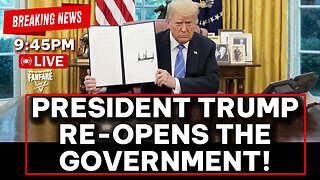 1:19:53
1:19:53
Barry Cunningham
6 hours agoBREAKING NEWS: PRESIDENT TRUMP RE-OPENS THE UNITED STATES GOVERNMENT!
37.2K17 -
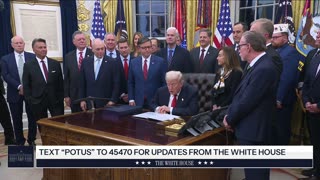 20:47
20:47
The White House
6 hours agoPresident Trump Signs Senate Amendment to H.R. 5371
30.4K33 -
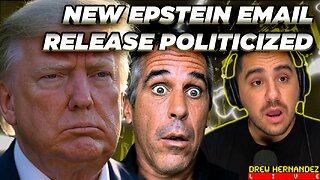 4:37:57
4:37:57
Drew Hernandez
23 hours agoNEW EPSTEIN EMAIL DROP FULLY POLITICIZED
54K17 -
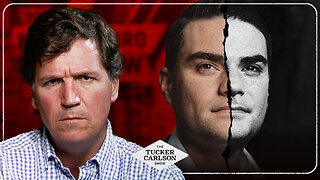 1:44:01
1:44:01
Tucker Carlson
5 hours agoTucker Carlson on the Israel First Meltdown and the Future of the America First Movement
57.8K410 -
 4:02:08
4:02:08
Alex Zedra
6 hours agoLIVE! Phasmaphobia New Map!
49.4K2 -
 2:16:06
2:16:06
Laura Loomer
7 hours agoEP155: Jihad Makes Its Move On The White House
42.8K61 -
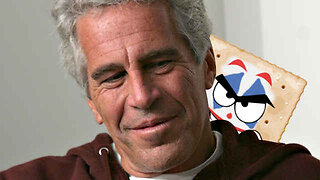 2:18:47
2:18:47
TheSaltyCracker
7 hours agoDem's Epstein Drop Backfires ReeEEStream 11-12-25
103K216